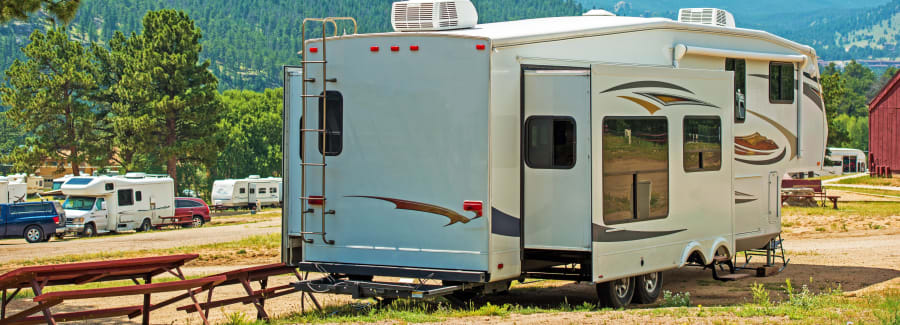Before you can tow a camper trailer, you would like to know whether your car insurance provides coverage or not. It provides coverage to some extent; however, before that, you should know a few things.
Liability Coverage
If you are towing a camper trailer or any other trailer, it is most probable that your liability coverage will provide coverage to your camper trailer too. The insurance company would offer the same liability coverage and its limits as if you weren’t towing the camper trailer if you caused an accident.
But it is crucial to see if this common rule applies to your insurance coverage as few insurance policies don’t cover towing, especially to the customized car or SUV that is not for towing the camper trailer from factory manufacturing.
Then, consider if your liability coverage is enough. If you tow a camper trailer, it means your vehicles’ overall weight increases, which means it will take time to stop and harder to maneuver your vehicle. The overall increase in weight also increases the chances of accidents. Moreover, the increase in your vehicle’s total weight will result in much larger damage in such an accident. But if you want to tow any trailer, you might increase the liability coverage limits that include an additional risk.
Comprehensive Coverage
It is possible that your insurance agency doesn’t provide a comprehensive policy to cover your camper trailer. Still, in case it does, it might cover only when the camper trailer is attached to your car. The limit of coverage it provides might also be lower than your requirement. Thus, leaving the trailer vulnerable to damages caused by natural disasters or theft. If you want to get full coverage, insurance companies offer trailer insurance separately.
Collision Coverage
Like comprehensive coverage, collision coverage might also provide limited coverage for the damages caused by accidents to your camper trailer. If not, you can also add a trailer to your collision policy. But these two coverages are mostly designed for the kind of trailer used for towing grass cutters. Your camper trailer most probably is costlier than a built-in coverage. Hence it is wise to insure your camper trailer separately.
Personal Property
A camper trailer contains your clothes, equipment, kitchen utensils, and camping gear. Everything that your camper trailer has is personal property that also requires coverage from damage or theft. Like comprehensive and collision policy, your car insurance or home insurance might cover personal property to some extent. Still, it can’t cover the total value of the items your trailer contains. You can buy a trailer insurance policy separately if you can’t afford to add trailer coverage to your existing auto insurance policy.
Factors to Consider When Buying Trailer Insurance
Having a separate customized trailer policy guarantees full coverage to all your needs when towing. Having a tailored policy means you have it on your terms, and that protects all your personal belongings. Here are a few factors that you need to consider if you are looking for trailer insurance.
- Vacation Liability: It covers the property or bodily damage if the accident is your fault and the accident involves your trailer as a temporary residence for your vacations.
- Replacement Cost Personal Effects: The policy provides coverage to your loss of personal belongings (clothing, furniture, etc.) to a specific limit caused due to an accident.
- Fire Department Service Charge: This policy provides coverage by paying up to $1,000 for the fire department charges to save your trailer from fire. But it requires your liability coverage to have an agreement for such a policy.
Insured to value: Make sure the policy you purchased will cover your personal belongings’ total worth or value, also if the coverage can provide a complete replacement to your trailer in case of damage.


